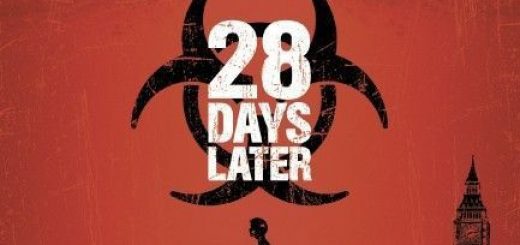Conan O’Brien Can’t Stop reveals the man inside the hair
By Sean-Paul Boynton

Conan O'Brien is angry and lovable in the new documentary about his tour across North America. Photo courtesy of Google Images.
In the 1979 retrospective film about The Who, The Kids Are Alright, an archival interview clip of Pete Townshend is shown in which he explains that when he’s onstage, he’s a completely different person. The film ends up supporting that claim by juxtaposing footage of his (mostly) humble, soft-spoken, and friendly and inviting offstage demeanor with sudden glimpses of the brutally savage and destructing beast he becomes in concert.
Conan O’Brien Can’t Stop, a documentary by Rodman Flender that follows the titular comedian during his two-month Legally Prohibited From Being Funny On Television Tour of 2010, works in much the same way in establishing the duel personality of the professional performer, yet O’Brien’s case is the exact opposite of Townshend’s. Onstage, Conan is shown to still be the most charming and effortlessly funny personality to ever come out of the world of late night television, and spends much of his time trying (and often succeeding) to bridge the inevitable gap between himself and his audience.
Offstage, however, is a different story. Much has been written already of how the film shows O’Brien with his staff and his friends once the audience is no longer in view. He randomly hits a few of them, berates nearly all of them, and as Flender’s camera shows (yet doesn’t exploit nor underline), ends up making all of them at least a little bit uncomfortable. The fact that all this behaviour is delivered in Conan’s trademark wink-wink-it’s-only-a-joke style doesn’t soften the blow.
To be fair, the backstage atmosphere that Conan O’Brien Can’t Stop shows is likely not representative of the way things are today, or five years ago. The tour that provides the film with its narrative was a spur-of-the-moment idea that came right after O’Brien’s premature and nasty departure from the hallowed Tonight Show and NBC, and the man on camera here is still reeling from losing his dream job. He’s angry, bitter, depressed, and most of all hungry for a chance to interact with an audience and hear that mass laughter and applause he had gotten accustomed to after nearly 20 years in the business. So he announces a comedy tour on Twitter and, once it becomes clear that nearly all the tickets have sold out in a couple of hours, he scrambles to put a show together.
The formation of the show provides the majority of the uncomfortable moments mentioned above, as he consistently takes charge of the brainstorming sessions with his writers to spitball jokes that are essentially jabs at NBC, Jay Leno, and the fact that he was royally screwed. More than once, we see O’Brien leap into an inspired dig at his unemployment that has his writers either chuckling or howling, and yet he proceeds to take the joke over the line of humourous self-parody and into the realm of the uncomfortably real, and we see the true hurt feelings and rage behind the mask. This is a man on the edge, and as the title makes clear, the film shows a Conan O’Brien who’s unwilling or unable to do what most people in his position would do: take a break, hide from view for awhile, clear his thoughts and reemerge fresh. Instead, he just keeps going, onto the next thing, regardless of the fact that he’s still carrying all of his pain and anger with him as baggage.
Once the tour gets underway, however, we begin to glimpse a second, more inspiring and moving story that hides under the main point Flender seems to be making of an obsessive and attention-hungry performer. As O’Brien and his staff travel the country, hitting small towns and big cities along the way, we see Conan becoming more confident in himself after every show, and the anger and bitterness begin to slip away to reveal the fun guy we have always known. And with that cynicism disappearing, Conan’s interactions with the people around him become increasingly warm and appreciative.
Surprisingly, the most representative and touching aspect of this theme and the film itself is not the relationships the star has with his wife, his kids, or even his longest-serving staffers, but rather the relationship between O’Brien and his young assistant, Sona. While we first get the impression that Sona is simply an easy and obvious punching bag for her employer (at one writers meeting, Conan insists Sona, like his (all male) writers, speak into a banana if she wants to be heard; the obvious connotations of forcing a woman to hold and speak into a phallic object in order to gain attention and respect from men is not lost on her, or us), it soon becomes clear that Sona is undoubtedly one of the few people – along with his wife, his producers Gavin Polone and Jeff Ross, and his longtime friend and sidekick Andy Richter – that Conan can consistently rely on.
As O’Brien shakes away the hurt and the sorrow, his jokes shared with friends and staffers start to sound more like jokes, rather than veiled threats and barbs. The shows even get better. By the end of the tour and the film, after the final show in Atlanta, O’Brien and Sona share a deeply affectionate hug in a hotel room that is able to communicate both Conan’s shame in himself for his treatment of his assistant two months before, as well as his pride in her for sticking it out with him and always being at the ready when needed (which she proves to be throughout the film).
As Sona leaves, we see she is crying, yet also smiling, because she appears to know what we also pick up on at that moment: that this tour has saved Conan O’Brien from his bitterness, and he finally can move on. Early in the film, O’Brien tells the camera, “Sometimes I’m so mad I can’t even breathe.” By the end, it’s clear that the man the world has come to affectionately call CoCo can breathe a little easier, and as seen on his new TBS talk show, it just keeps getting better all the time.





